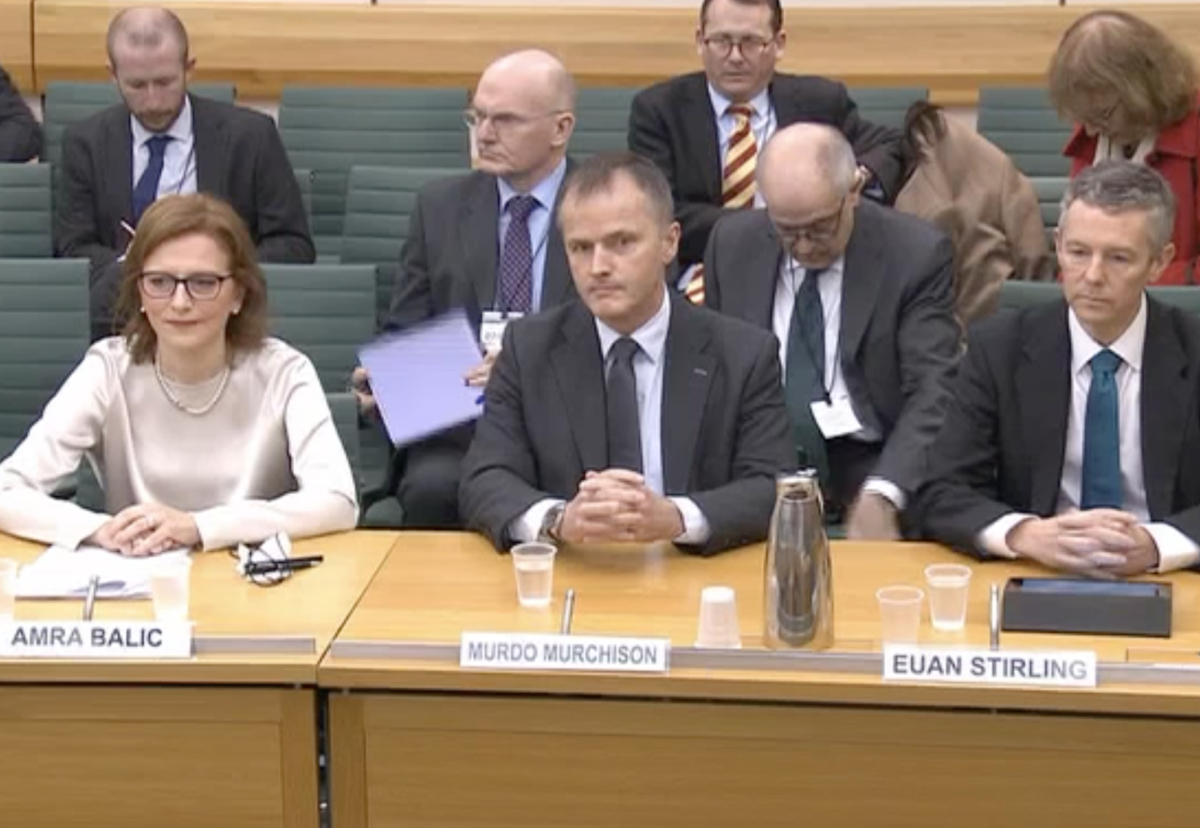They also raised questions about KPMG’s auditing role in the 2016 accounts which failed to reveal any problems just four months before the disastrous £845m writedown.
Major investors Aberdeen Standard Investments, Kiltearn and Blackrock were quizzed by the joint select committees about their concerns in the wake of the collapse.
Blackrock managing director Amra Balic told the committees that it became clear during its most recent conversation with Carillion board members that greater attention was being paid to bonuses than to the deterioration of the business.
She said: “It seems that the board was focusing more on how to remunerate executives rather than actually what was going on at the business.
“There was definitely too much focus at the board level around remuneration.”
She also revealed clients who invested in shorted funds managed by Blackrock made £36m between 2013 and January 2018.
Murdo Murchison, chairman of Kiltearn Partners, criticised the audit of the 2016 accounts given that incoming Carillion Construction finance chief Emma Mercer then quickly uncovered significant problems on a raft of major contracts.
He said: “I remained puzzled by the fact that someone can be six weeks in a job and discover issues with contracts that have been approved by accountants we are now told are sloppy.
“There appear internally to be issues that were hidden in plain sight, but were not evident to the auditors. That is a puzzle that has yet to be solved.”
Murchison added: “I’m extremely frustrated with the audit performance. We rely heavily on audited financials.
“The disclosure of minutes that raise question marks about whether this was sloppy, aggressive accounting or very aggressive accounting, none of these should be associated with a healthy audit.
“A company burns through £850m of cash in one year having apparently for many years generated reasonable amounts of cash flow then there is clearly a case to answer. There must have been prior issues that weren’t presented to investors.”
He added that the FTI Consulting report into Carillion’s problems for its banks provided very strong evidence that issues were pre-existing over a number of reporting periods.
Murchison said: “On evidence of the last few months it seems quite clear that there is a case to answer here.
“From minutes from the board meeting in August 22 it is clear there were pre-existing issues. you had a company with a culture of meeting the numbers, and whenever you have a meeting the number type culture, people will push the accounting to hit short-term targets.”
Aberdeen Standard Investments revealed the flashing red signs which made it begin to sell its 12% stake in Carillion much earlier than other investors.
ASI’s global head of stewardship and ESG investing Euan Stirling said red lights flashed as debt levels grew every year and every half-year as the company failed to convert profitability into cashflow and it continued to invest in acquisitions that were adding to the debt pile.
He said: “I met chairman Phillip Green in 2014 and 2015. I felt non-executive support was there for the Carillion strategy but the challenge was lacking, which gave us the firm opinion that whatever we were saying to the company that strategy would be pursued for a number of years to come and we were dissatisfied with that.
“When we looked at the 2016 results the picture painted on the first couple of pages was not supported by information that lay deeper in the accounts.
“So for example the use of reverse factoring to support a stated debt level that flattered the company’s financial position was revealed later in the accounts.”






.gif)










































 (300 x 250 px).jpg)






